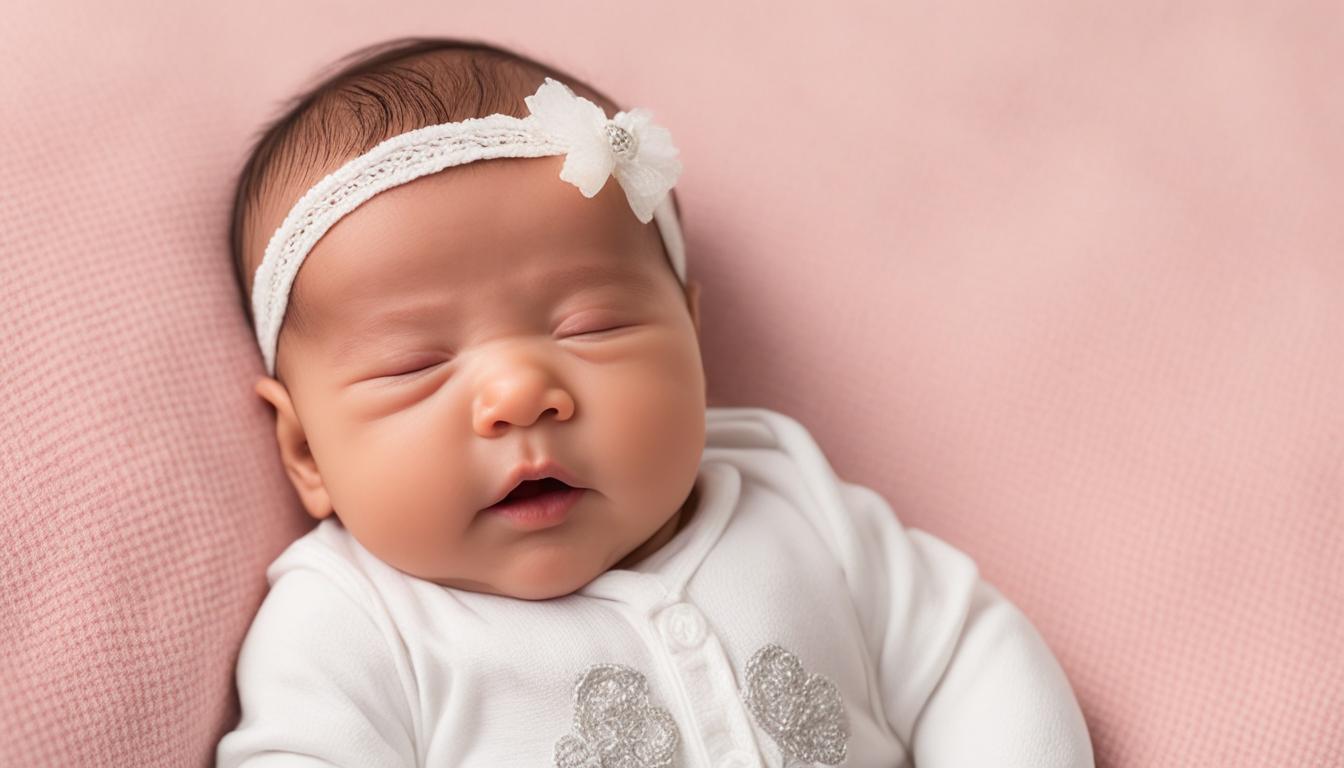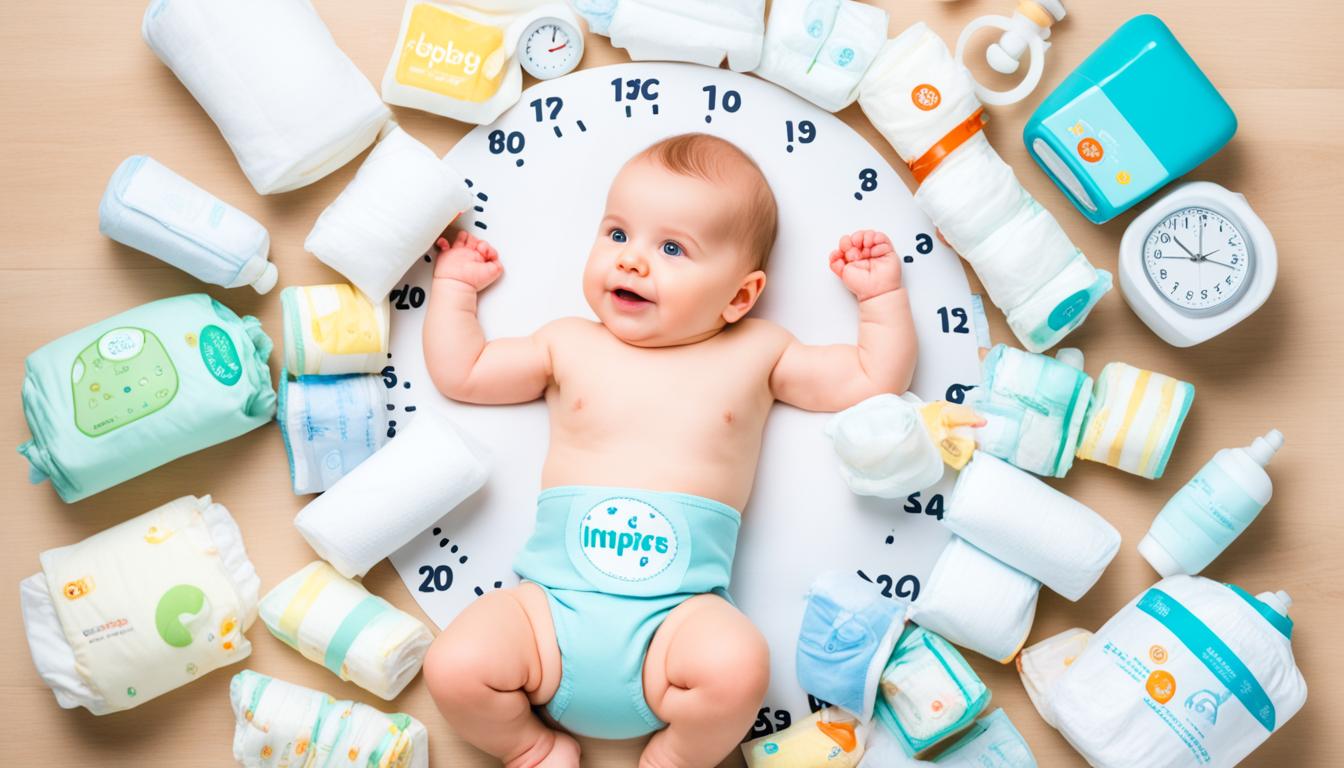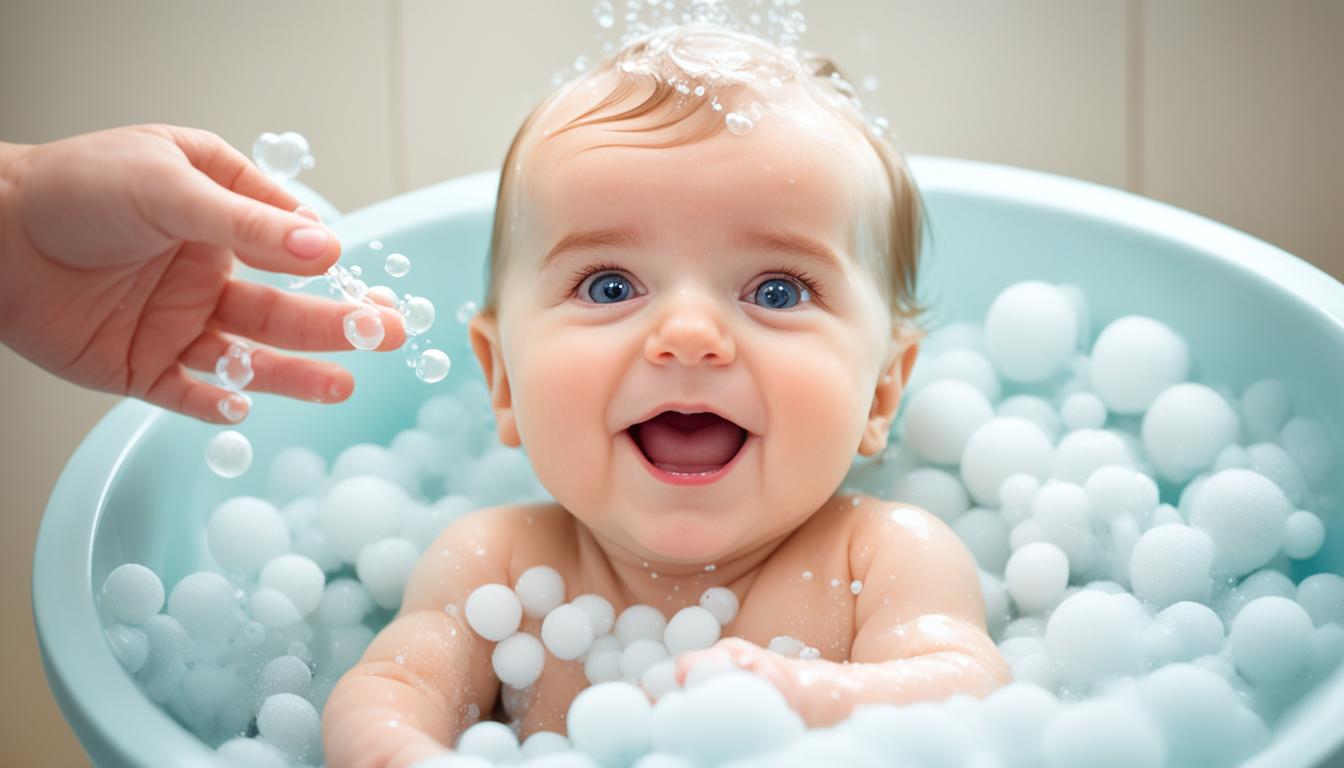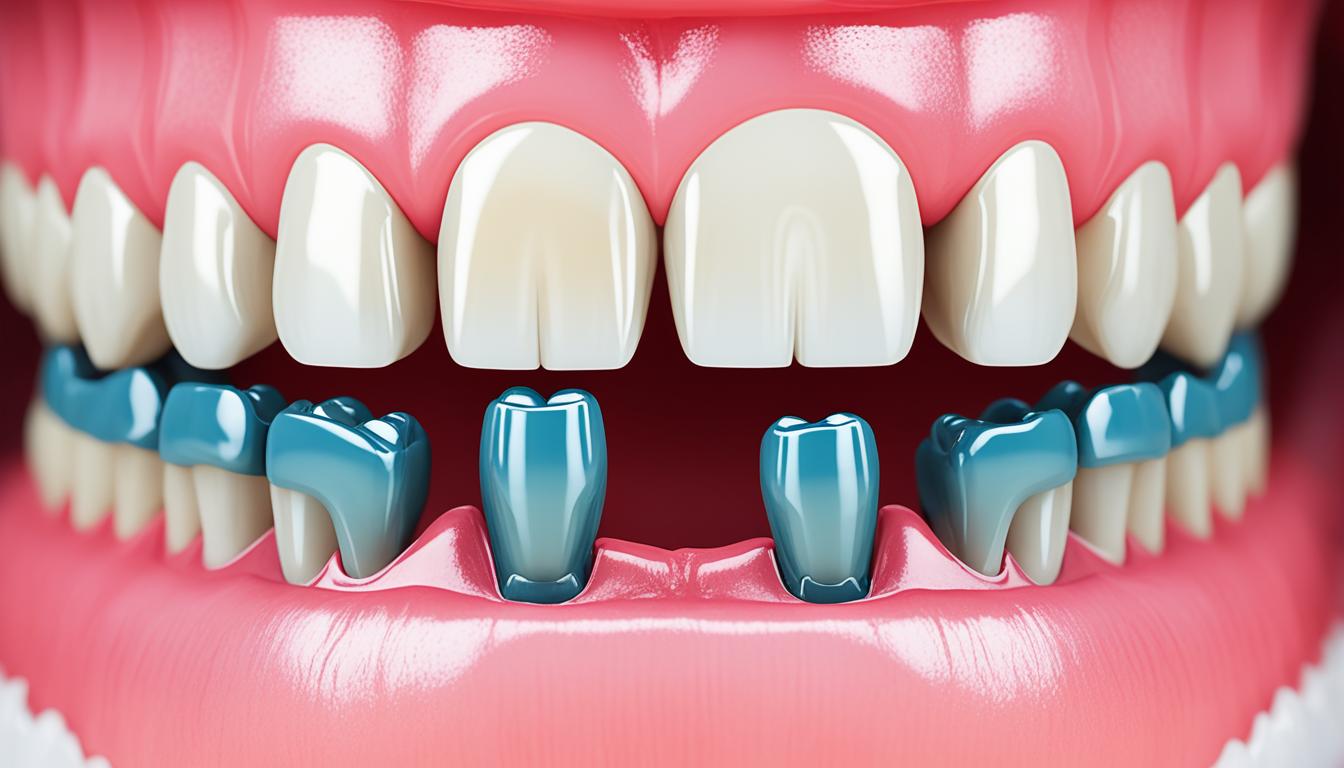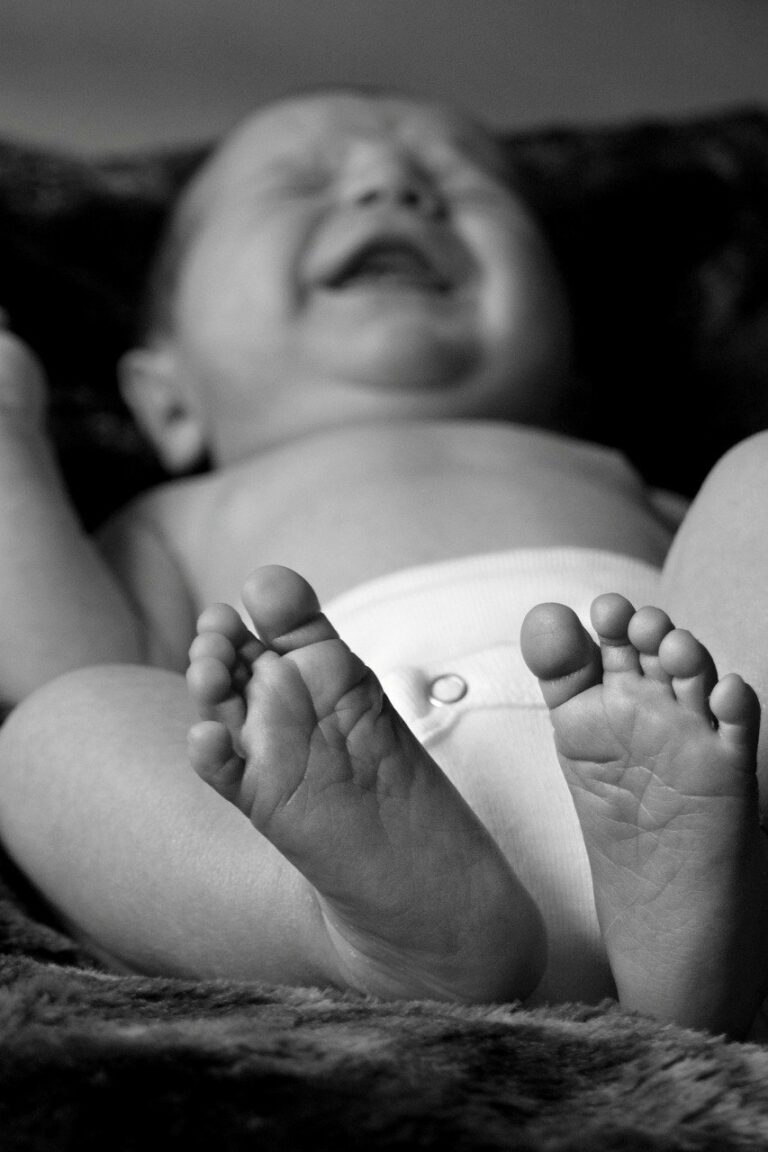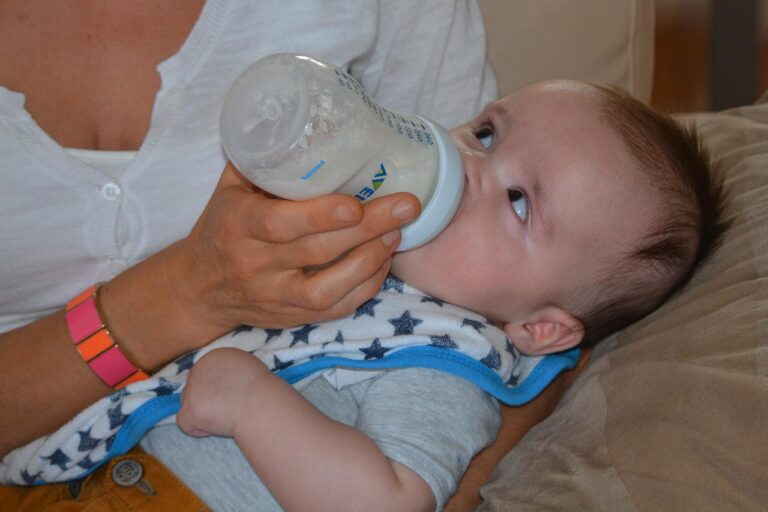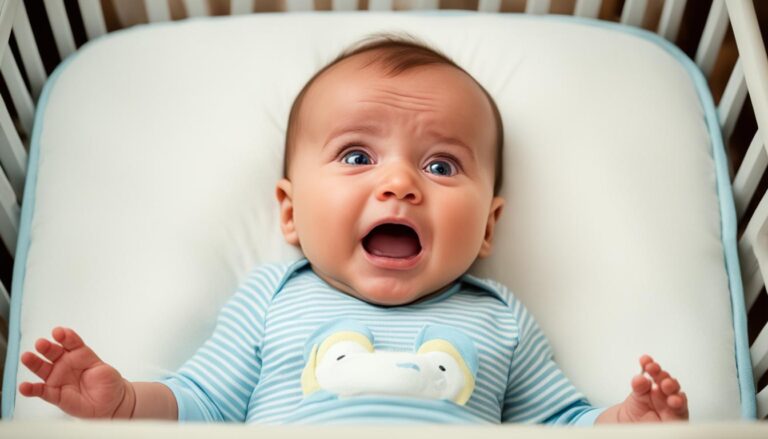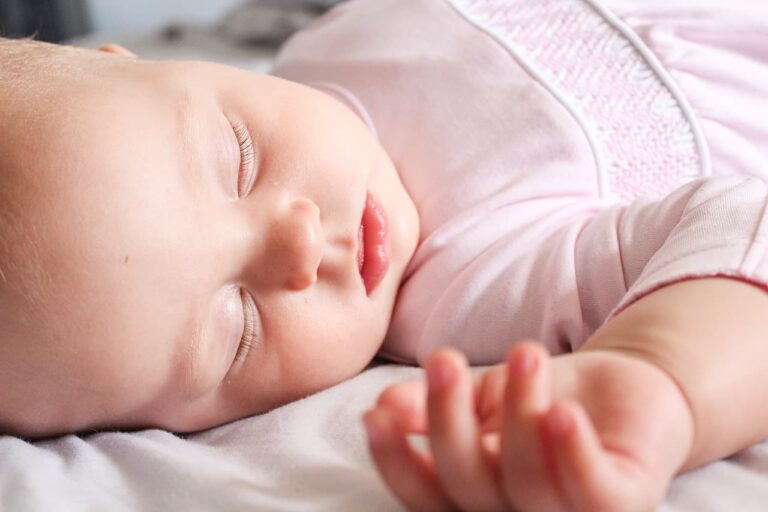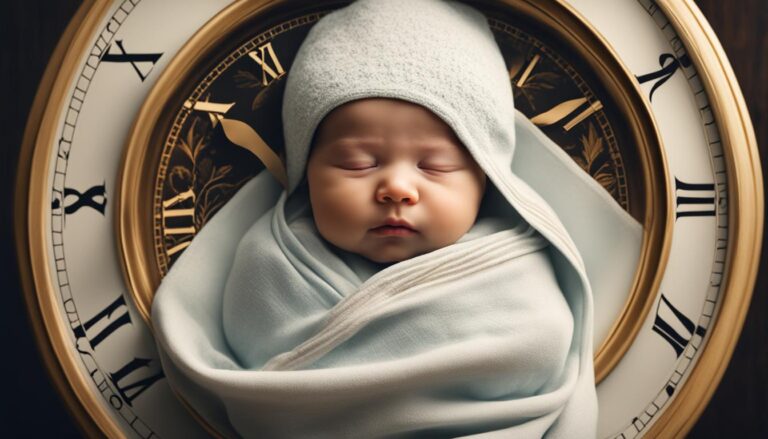Understanding 1-Month-Old Baby Bottom Lip Quiver
When you observe your 1-month-old baby’s lower lip quivering rapidly, particularly during episodes of crying, it might bring to mind the exaggerated shivering often seen in cartoon characters who are cold. This intriguing phenomenon is explored more in depth below.
Several factors can contribute to a baby’s lip quivering, including being cold, an underdeveloped immune system, and low vitamin levels. While lip quivering is often normal and not a cause for concern, it’s important to observe your baby for other accompanying symptoms and consult a pediatrician if needed.
- Lip quivering in babies is often normal and not a cause for concern.
- It may be caused by an immature nervous system, weak muscles, or temperature changes.
- In rare cases, lip quivering could be a sign of an underlying medical condition.
- Consult a pediatrician if the lip quivering persists or is accompanied by other symptoms.
- There are tips to ease quivering lips in babies, such as keeping them warm and avoiding overstimulation.
Skip To The Following Sections
Possible Causes of Baby Lip Quiver
When your baby’s lip quivers, you may wonder what could be causing this adorable yet concerning phenomenon. There are several possible causes for baby lip quivering, and understanding them can help put your mind at ease.
1. Immature Nervous System
One likely reason for lip quivering in babies is their immature nervous system. Babies are born with underdeveloped nervous systems, which can result in their lower lip trembling. This is a normal reflex that typically subsides within a few months as their nervous system matures.
2. Overstimulation
Babies can experience trembles and jerks in various parts of their body, including their lips, when they are overstimulated. Overstimulation can occur when babies are exposed to too much noise, light, or activity. The sensory overload can contribute to lip quivering.
3. Muscle Use
The use of certain muscles during tasks like urinating or passing wind can cause newborns to have quivery lips. It’s important to remember that their muscles are still developing, and these trembles are usually harmless and temporary.
4. Temperature Changes
Exposure to cold temperatures can also trigger lip quivering in babies. Just like adults, babies may experience shivering or trembling when they are chilly. This quivering may extend to their lips as well.
Understanding the possible causes of baby lip quiver can provide reassurance and help you respond appropriately. Remember, in most cases, lip quivering is normal and part of your baby’s developmental journey.
Medical Reasons for Baby Lip Quiver
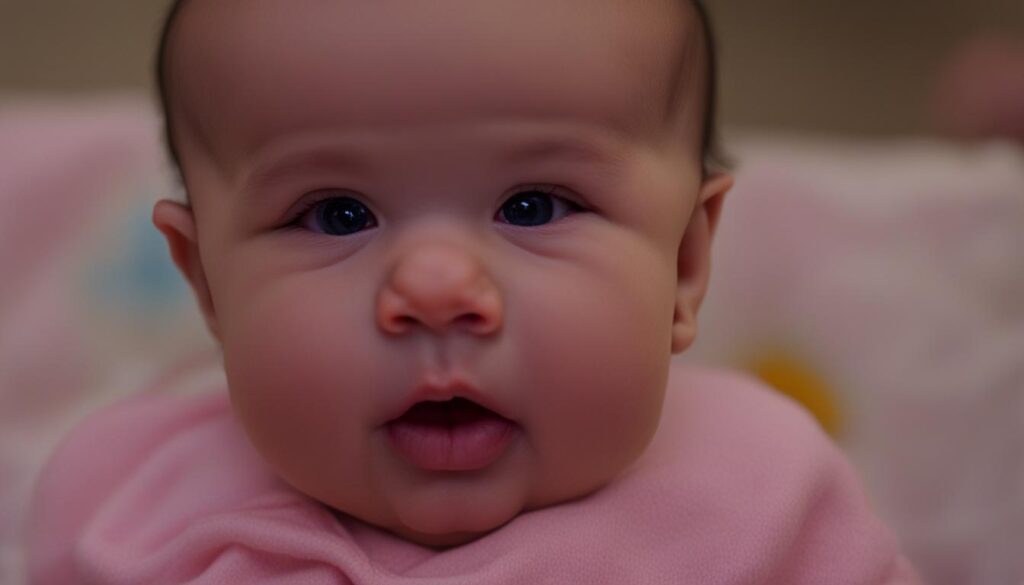
In rare cases, baby lip quivering could be a sign of an underlying medical condition or congenital disability. Some medical reasons for lip quivering include:
- Hypoglycemia (low blood sugar): Low blood sugar levels can cause lip quivering in babies. If your baby’s lip quiver is accompanied by other symptoms such as lethargy, excessive crying, and poor feeding, it’s essential to consult a pediatrician.
- Intracranial hemorrhage (bleeding in the brain and skull): Bleeding in the brain and skull can cause lip quivering and other neurological symptoms. Seek immediate medical attention if you notice any signs of intracranial hemorrhage.
- Hyperthyroidism: Excessive thyroid hormone production can lead to lip quivering in infants. If your baby’s lip quiver is persistent and accompanied by rapid weight loss, irritability, and excessive sweating, consult a healthcare professional.
- Hypocalcemia (low calcium levels): Insufficient calcium levels can cause muscle tremors, including lip quivering. Other symptoms of hypocalcemia may include seizures, muscle twitches, and poor muscle tone. Prompt medical attention is crucial in such cases.
If you notice prolonged or persistent lip quivering in your baby, it’s important to consult a pediatrician to rule out any serious medical causes. Remember, most cases of lip quivering are normal and harmless, but it’s always better to be safe and seek professional advice.
“My baby’s lip began to quiver during a feeding, and I noticed other unusual symptoms. I immediately contacted our pediatrician, and after further evaluation, we discovered that my baby had hypoglycemia. I’m grateful we took prompt action and got the proper medical attention.” – Sarah, mother of two.
Diagnosis of Lip Quivering in Babies
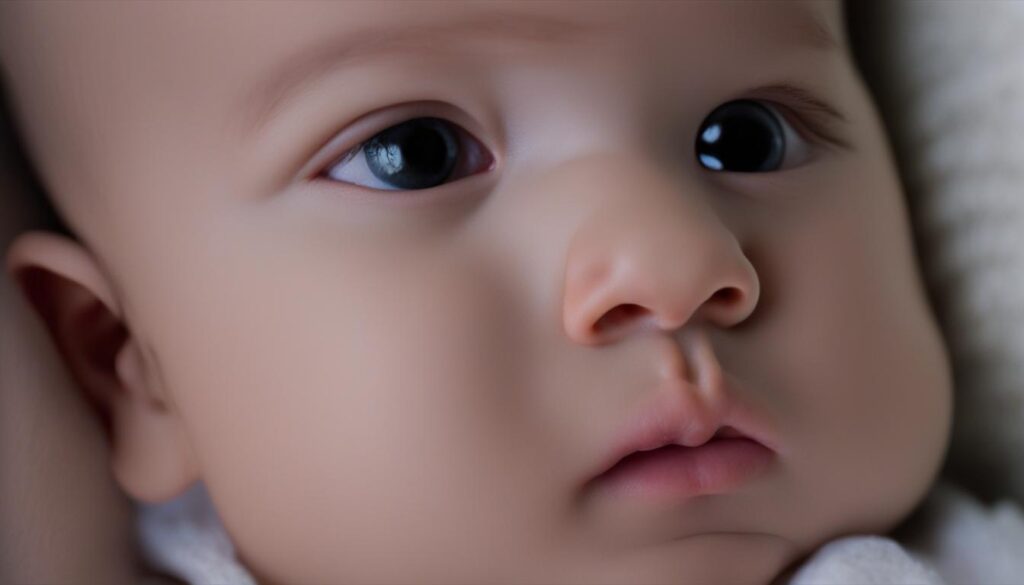
To diagnose lip quivering in babies, a doctor will conduct a thorough physical examination and gather information about the baby’s medical history. This will help the doctor understand the context and potential triggers for the lip quivering. Additionally, the doctor may recommend various tests to further evaluate the baby’s condition and rule out any underlying causes.
These tests may include:
- Brain imaging (CT Scan or MRI): These imaging techniques can provide detailed images of the brain and help identify any abnormalities or structural issues that may be contributing to the lip quivering.
- Electroencephalogram (EEG): An EEG measures the electrical activity in the brain and can help detect any irregularities or abnormal patterns that may be linked to the lip quivering.
- Blood tests: Blood tests can be performed to check for deficiencies or imbalances in essential nutrients or hormones that may be causing the lip quivering.
By conducting these examinations and tests, doctors can gather valuable information to make an accurate diagnosis and determine the best course of action for treating the baby’s lip quivering.
Remember, it’s essential to communicate any concerns or observations about your baby’s lip quivering to the pediatrician for proper evaluation and diagnosis. Prompt medical attention will ensure appropriate care and peace of mind for you and your little one.
Treatment Options for Baby Lip Quiver
Treatment for baby lip quivering depends on the underlying cause. In most cases, if the lip quivering is due to an immature nervous system or weak muscles, it will improve on its own over time.
However, if the doctor diagnoses any medical issues or deficiencies, they may recommend specific treatment options.
For example, hypocalcemia may require calcium replacements, while more serious neurological problems may require medications or physical therapy.
Tips for Easing Quivering Lips in Babies
If your baby’s lip quivering is not due to a medical condition, there are some tips you can follow to ease the quivering. First and foremost, keeping your baby warm can help reduce the frequency and intensity of lip quivering episodes. Ensure that your baby is dressed appropriately for the weather and use blankets or warm clothing to provide extra insulation.
In addition, gently tapping on your baby’s lips when they quiver can provide sensory stimulation and help calm the tremble. This gentle touch can provide a sense of comfort and security for your little one.
It’s also important to monitor the time and situations when your baby’s lip quivering occurs. If you notice any patterns or triggers, such as exposure to cold or overstimulation, try to avoid or minimize these factors to prevent lip quivering episodes.
While most cases of lip quivering in babies are harmless, it’s important to check your baby’s blood sugar levels if they are at risk for hypoglycemia. Consult with your pediatrician to determine if blood sugar testing is necessary and follow their recommendations for monitoring and managing your baby’s condition.
Breastfeeding exclusively for the first six months and consuming a nutritious diet can provide your baby with essential nutrients through breast milk. This can support their overall health and development, potentially reducing the occurrence of lip quivering.
Lastly, to prevent overstimulation, create a calm and peaceful environment for your baby. Avoid excessive noise, bright lights, and crowded spaces that may cause your baby to become overwhelmed. Providing a serene setting can help soothe your baby and minimize lip quivering episodes.
If you are ever concerned about your baby’s lip quivering, it’s always best to seek medical attention and have them evaluated by a doctor. They can assess your baby’s specific situation and provide personalized advice and guidance.
FAQ
What is baby lip quiver?
Baby lip quiver is a condition where a baby’s lip, especially the lower lip, trembles rapidly. It is often accompanied by crying and resembles the quivering of a cartoon character when they are cold.
What are the possible causes of baby lip quiver?
Some possible causes of baby lip quiver include an immature nervous system, overstimulation, use of certain muscles, and temperature changes such as exposure to cold.
Are there any medical reasons for baby lip quiver?
Yes, in rare cases, baby lip quivering can be a sign of an underlying medical condition or congenital disability. Some medical reasons include hypoglycemia, intracranial hemorrhage, hyperthyroidism, and hypocalcemia.
How is lip quivering in babies diagnosed?
To diagnose lip quivering in babies, a doctor may perform a physical examination, ask questions about the baby’s medical history, and recommend tests such as brain imaging, EEG, and blood tests.
What are the treatment options for baby lip quiver?
Treatment for baby lip quivering depends on the underlying cause. In most cases, if it is due to an immature nervous system or weak muscles, it will improve on its own over time. If there are medical issues or deficiencies, the doctor may recommend specific treatment options.
Are there any tips for easing quivering lips in babies?
Yes, there are some tips you can follow to ease quivering lips in babies, such as keeping your baby warm, tapping on their lips gently, monitoring the situations when quivering occurs, and avoiding overstimulation. It’s always best to seek medical attention if you are concerned about your baby’s lip quivering.

